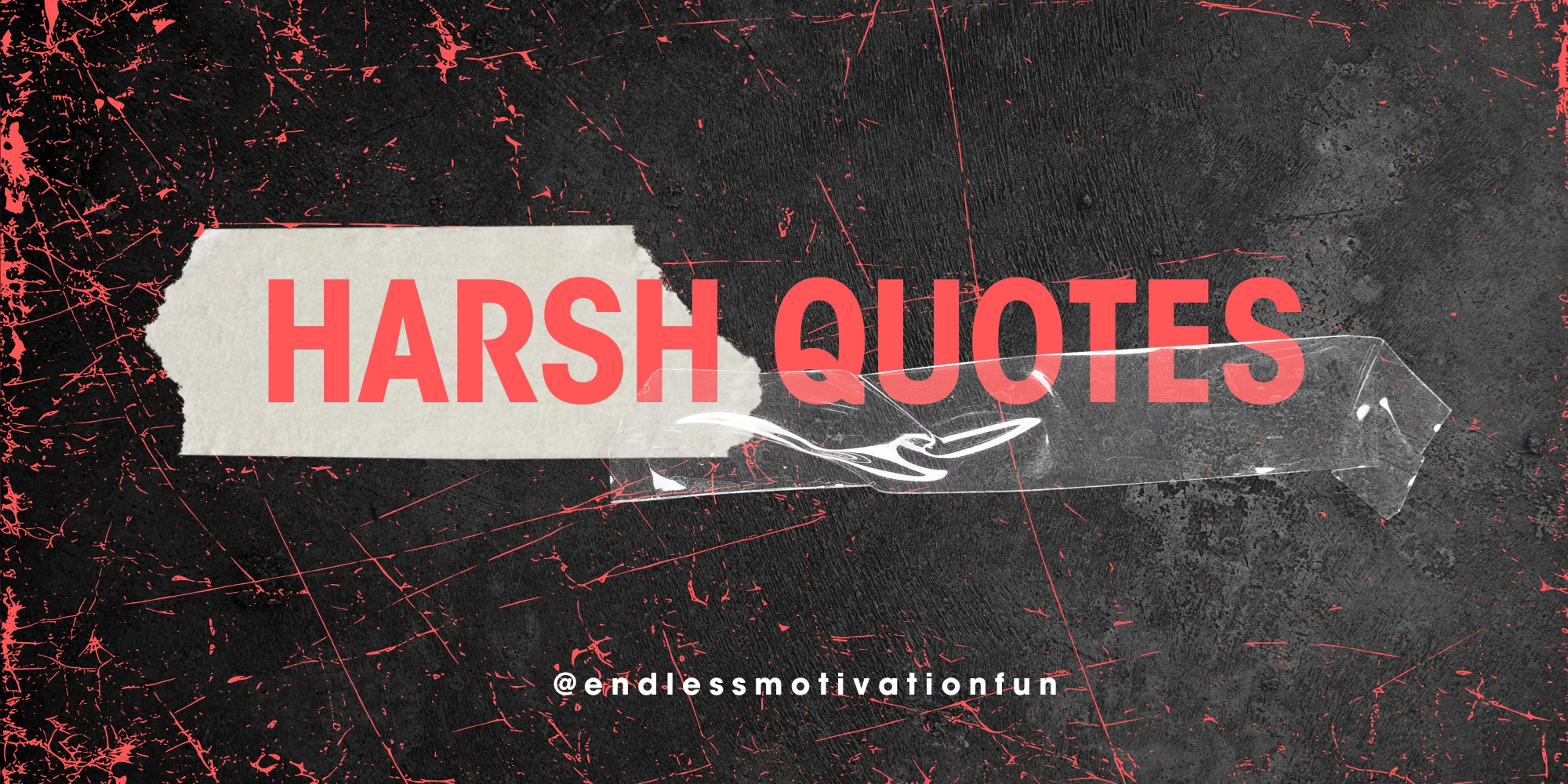In 2025, the world continued to grapple with rapid technological advancements, environmental crises, political upheavals, and shifting cultural norms. Amidst this turbulence, certain quotes emerged that cut through the noise, offering stark, often uncomfortable truths about the state of humanity. These quotes, while harsh, resonated deeply with people worldwide, sparking conversations, debates, and even movements. Below, we explore the ten most influential harsh quotes of 2025, examining their origins, meanings, and the impact they had on society.
1. “The planet is not dying; it’s being killed. And the killers have names and addresses.”
– Anonymous Climate Activist, 2025
This quote became a rallying cry for environmental activists in 2025, as the effects of climate change reached catastrophic levels. Floods, wildfires, and food shortages became daily headlines, and people grew increasingly frustrated with the lack of meaningful action from governments and corporations. The quote’s harshness lies in its direct accusation: it names the culprits—corporations and individuals profiting from environmental destruction—and demands accountability. It inspired a wave of lawsuits against polluting companies and fueled the rise of eco-terrorism, as some activists took extreme measures to “name and shame” those responsible.
2. “We built AI to replace workers, not to create better jobs. Now we’re all unemployed.”
– Dr. Elena Martinez, AI Ethicist, 2025
By 2025, artificial intelligence had advanced to the point where it could perform nearly any task better and cheaper than humans. While this led to unprecedented productivity, it also resulted in mass unemployment and economic inequality. Dr. Martinez’s quote highlighted the shortsightedness of prioritizing profit over people. It became a cornerstone of debates about universal basic income (UBI) and the ethical implications of AI. The quote’s harshness forced society to confront the uncomfortable reality that technological progress does not always equate to human progress.
3. “Your data isn’t just being collected; it’s being weaponized against you.”
– Julian Cross, Cybersecurity Expert, 2025
In 2025, data breaches and privacy violations reached an all-time high, with governments and corporations using personal data to manipulate behavior, influence elections, and suppress dissent. Julian Cross’s quote served as a wake-up call, exposing the dark side of the digital age. It led to widespread calls for stricter data protection laws and inspired a “digital detox” movement, where people began abandoning social media and other platforms that exploited their information. The quote’s harshness lay in its implication that individuals were complicit in their own exploitation by willingly surrendering their privacy.
4. “We’re not fighting for equality anymore; we’re fighting for survival.”
– Aisha Patel, Human Rights Advocate, 2025
As global inequality reached staggering levels in 2025, Aisha Patel’s quote encapsulated the desperation felt by marginalized communities worldwide. The gap between the rich and the poor had become so vast that basic human rights—access to clean water, food, and healthcare—were no longer guaranteed for billions. The quote’s harshness underscored the urgency of the situation, galvanizing grassroots movements and forcing policymakers to address systemic inequities. It also sparked debates about the ethics of wealth accumulation in a world where so many were suffering.
5. “The metaverse isn’t the future; it’s a distraction from the present.”
– Marcus Lee, Tech Critic, 2025
By 2025, the metaverse had become a multi-trillion-dollar industry, with millions of people spending hours each day in virtual worlds. Marcus Lee’s quote challenged the notion that this was progress, arguing that it was merely a way for people to escape the harsh realities of the physical world. The quote’s harshness lay in its critique of society’s willingness to abandon real-world problems in favor of digital fantasies. It inspired a backlash against tech companies promoting the metaverse and led to calls for more investment in tangible solutions to global issues.
6. “We’ve normalized greed to the point where it’s celebrated as ambition.”
– Sophia Nguyen, Economist, 2025
In 2025, the world’s wealthiest individuals continued to amass fortunes while billions struggled to make ends meet. Sophia Nguyen’s quote called out the cultural shift that had turned greed into a virtue, particularly in the business world. The quote’s harshness forced society to reevaluate its values and question whether unchecked ambition was truly beneficial. It became a central theme in discussions about corporate responsibility and the need for ethical leadership.
7. “The truth doesn’t matter anymore; only the narrative does.”
– Carlos Rivera, Media Analyst, 2025
In an era of deepfakes, misinformation, and polarized media, Carlos Rivera’s quote highlighted the erosion of truth in public discourse. By 2025, it had become nearly impossible to distinguish fact from fiction, and people increasingly consumed news that aligned with their beliefs rather than seeking objective truth. The quote’s harshness lay in its implication that society had given up on truth altogether, prioritizing convenience and comfort over integrity. It sparked a global movement to promote media literacy and critical thinking.
8. “We’re not raising children; we’re raising consumers.”
– Dr. Emily Zhang, Child Psychologist, 2025
In 2025, the commercialization of childhood reached new heights, with children being targeted by advertisers from birth. Dr. Zhang’s quote criticized the way society prioritized profit over the well-being of future generations. The quote’s harshness forced parents, educators, and policymakers to confront the impact of consumer culture on children’s development. It led to calls for stricter regulations on advertising to minors and a renewed focus on fostering creativity and critical thinking in education.
9. “We’ve traded freedom for convenience, and now we’re prisoners of our own making.”
– Ravi Desai, Philosopher, 2025
As smart devices, surveillance systems, and AI-driven services became ubiquitous in 2025, Ravi Desai’s quote highlighted the trade-offs people made in the name of convenience. The quote’s harshness lay in its assertion that society had willingly surrendered its freedom, only to realize too late the consequences of doing so. It inspired a movement to reclaim privacy and autonomy, with people demanding greater control over their data and technology.
10. “The only thing more dangerous than ignorance is the illusion of knowledge.”
– Dr. Sarah Thompson, Scientist, 2025
In an age where information was readily available but often misleading, Dr. Thompson’s quote underscored the dangers of overconfidence in one’s understanding. The quote’s harshness lay in its critique of the way people used superficial knowledge to justify harmful beliefs and actions. It became a rallying cry for humility and lifelong learning, encouraging people to question their assumptions and seek deeper understanding.
The Power of Harsh Truths
The ten quotes above, while harsh, served as mirrors reflecting the challenges and contradictions of 2025. They forced individuals and societies to confront uncomfortable truths about technology, inequality, and humanity’s relationship with the planet. In doing so, they sparked important conversations and inspired meaningful change. As we move forward, these quotes remind us that progress often begins with acknowledging harsh realities—no matter how difficult they may be to face.

